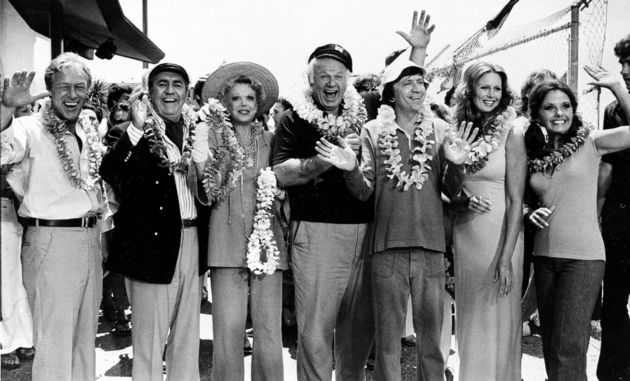Music Tickles Strong Memories

If the song "It's a Small World" has ever driven you bananas, then you've got an idea where this story is going.
We've all had tunes stuck in our heads. Some of them remind us of childhood friends, places or events.
A new study backs the obvious notion that a song can evoke strong memories. It also reveals that you don't even have to hear a song for the past to come flooding back.
In fact, most people have an amazing ability to effectively hear songs that aren't even being played.
Word power
The new study involved 124 people, average age 19, who were asked to choose from a list of old songs and pick the one that evoked the strongest memory. One group just saw the title, another saw the lyrics, the third saw the album cover or a photo of the artist. A fourth group heard a snippet of the song.
The participants ranked the vividness of their memories.
Sign up for the Live Science daily newsletter now
Get the world’s most fascinating discoveries delivered straight to your inbox.
The recollections were extremely clear for each group, said researcher Elizabeth Cady. "Music is a big cue," she concludes.
Cady, a doctoral student in psychology at Kansas State University, cites the study as evidence for the pervasiveness of mass media, noting that many of the participants' memories were the same as her own.
The results will be presented this week at the American Psychological Society meeting in Los Angeles.
Driving you nuts
You can test the power of song titles right now. But beware, one of these could ruin your day:
- "The Theme from Gilligan's Island"
- "Mission: Impossible"
- "We Will Rock You"
- "The Macarena"
These ditties, along with "Small World," were cited in a 2001 study by James Kellaris at the University of Cincinnati as among the most common that get stuck in peoples' heads.
Kellaris found that 99 percent of the 1,000 people he surveyed reported having songs lodged in their noggins. Nearly half said it happens frequently.
A simple song with lots of repetition and an unexpected shift is among the most likely to bedevil you, Kellaris says. Down the road, it creates a "cognitive itch" -- the thing that might bug you all day today (...after all...).
"The only way to 'scratch' a cognitive itch is to rehearse the responsible tune mentally," Kellaris said. "The process may start involuntarily, as the brain detects an incongruity or something 'exceptional' in the musical stimulus. The ensuing mental repetition may exacerbate the 'itch,' such that the mental rehearsal becomes largely involuntary, and the individual feels trapped in a cycle or feedback loop."
All in the lyrics
Scientists are beginning to figure out what's behind the insanity. A study earlier this year used brain scans to reveal that musical memories are stored in the brain's auditory cortex. It also showed that you continue to hear a familiar song in our head when the music stops playing.
"We played music in the scanner, and then we hit a virtual 'mute' button," explained David Kraemer, a graduate student in Dartmouth's Psychological and Brain Sciences Department. "We found that people couldn't help continuing the song in their heads, and when they did this, the auditory cortex remained active even though the music had stopped."
The study was reported in the March 10 issue of the journal Nature.
"It's fascinating that although the ear isn't actually hearing the song, the brain is perceptually hearing it," said co-author William Kelley, assistant professor of psychological and brain sciences at Dartmouth.
The researchers were surprised to find a difference in how we recall songs with words versus instrumentals.
When the mute button was hit during the word-free theme from the Pink Panther (sorry to do that again) people relied on many different parts of the auditory cortex to fill in the blanks. Fewer brain parts were required to continue "hearing" songs with words.
"It makes us think that lyrics might be the focus of the memory," Kraemer said.
Related Stories
- Study: Why Americans Have Bad Rhythm
- Music During Surgery Reduces Sedation Needs
- Bad Singing Leads to Virtuoso Performances in Birds
- Children Beat Adults in Memory Contest
- Coworkers Judged by iTunes Playlists
- Canaries Change Their Tune
What about Images?

In this 1978 picture, the cast of "Gilligan's Island" poses during filming of a reunion show, "The Return from Gilligan's Island."
From left are, Russell Johnson, the professor; Jim Backus as Thurston Howell III; Natalie Schafer, Mrs. Howell III; Alan Hale Jr., the skipper; Bob Denver, as Gilligan; Judith Baldwin, as Ginger, the only new cast member; and Dawn Wells, as Mary Ann.
AP Photo/Wally Fong
Robert is an independent health and science journalist and writer based in Phoenix, Arizona. He is a former editor-in-chief of Live Science with over 20 years of experience as a reporter and editor. He has worked on websites such as Space.com and Tom's Guide, and is a contributor on Medium, covering how we age and how to optimize the mind and body through time. He has a journalism degree from Humboldt State University in California.










